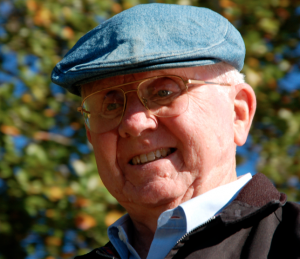Those who know me know that I’m a big fan of the Harry Potter books and movies. I started reading the books when I was 8th grade. So, like many people now in their mid 20s, I grew up with the books. This christmas my mom and dad gave me the last Harry Potter film on Blu-Ray and just yesterday I was watching the special features when something caught my attention.
Emma Watson, who played Hermione, was talking about her relationship with Jo Rowling, the author of the series. Jo based Hermione loosely on herself and she considered the casting of Hermione more important than any other character. In this Interview, Emma Watson mentioned that after the 3rd movie was released Jo sent her a letter that began, “To my perfect Hermione.” Emma talked about how much that meant; receiving such accolades from the woman who created Hermione was an enormous compliment.
As a person who dabbles in both acting and writing this is not lost on me. To have an author say to an actor that they are ‘perfect’ in their role – that is truly the highest praise possible. For a moment I wondered what that would feel like – having the originator of a character tell you that you did it perfectly. Jo Rowling started the creation of that Character even before Emma Watson was born and yet she felt that when Emma played the part she did so perfectly.
As I mentioned in my last blog post, being a member of the Millennial Generation means that I was given a lot of ‘Be the best you you can be’ talk. And ‘no one can be you but you.’ I always felt that those were vague and even foolish sayings. Sure, you don’t need to copy what everyone else is doing to be you, but everyone needs some guide – some template or role model. It was when I was watching this little featurette that it clicked for me.
As I was thinking ‘It must be amazing to have an author tell you as an actor that you played the part perfectly.’ I had a revelation. I would say that it was inspired by the Holy Spirit. I remembered this passage:
“Let us fix our eyes on Jesus, the author and perfecter of our faith…”
Hebrews 12:2a NIV (emphasis added)
I may never write a book that is made into a blockbuster film and I will almost certainly never be a character in one such movie. I will likely never have a role to play that the whole world will see and critique. Despite this, I still have a part to play – not a mask to wear, but rather a role to fill in my life. The Author has written it for me. Does this mean that I have no choice but to read his narrative with no expression of my own? By no means. He is expecting me to bring myself to this role. He is expecting me to take what is on the page and create my own artistic interpretation of his prose.
It isn’t about ‘me being the best me I can be.’ I’m a prideful, self-centered, boring person on my own. If left to my own devices, I’m only a sad shell of a human being. Instead, it’s about me finding a way to play that role that God has written for me in his great narrative. It’s about me giving a living interpretation of his story – the story he is writing now. I realize that I cannot be ‘perfect’ in the human sense of the word; I cannot be without any apparent flaws. What I can do, however, is be me as he meant me to be – such that God sees me as his perfect Will Adams.
It is my conviction that the greatest privilege we have in this life is simply being a living expression of the prose God is composing throughout history, in hopes that when our part has been played, Christ stands proud as the author of salvation – as the writer who tells the actor ‘you played the role perfectly.’


